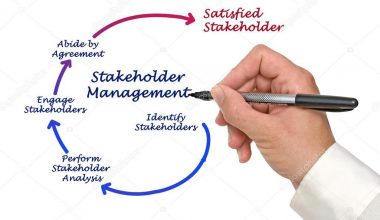It may be confusing to distinguish between mentoring and coaching. This is so that they can use their experience to assist others in achieving their goals. Knowing the main distinctions between mentoring and coaching will help you decide which approach your clients or workers would benefit from the most. In this article, we discuss what coaching and mentoring are, explain the differences between mentor vs coach vs manager, and outline the benefits and examples of each in the workplace.
What is Mentoring?
When a more experienced employee shares their knowledge, experience, and abilities with a less experienced employee to help them improve and progress, this is known as mentoring. Employees that aspire to imitate their professional behaviors and tread in their footsteps are given direction and counsel by mentors.
They serve as a resource for information for workers, resolving their issues and providing clarification. To foster personal relationships between veteran employees and new hires to foster a supportive and cooperative work environment, managers may use mentoring.
What is Coaching?
When a more experienced specialist motivates and coaches staff members or clients to meet their objectives and realize their full potential, this is referred to as coaching. Coaches encourage staff members to set and work toward professional development goals. They frequently make use of particular methods and activities that aid in building the kind of strong leadership, teamwork, and communication skills needed for success in the workplace.
Coaching Vs Mentoring in the Workplace
The two most effective ways to lead your team are through coaching vs mentoring. The objective of both mentoring and coaching is to assist others in expanding, developing, and realizing their full potential. According to numerous research on mentoring, accomplishing these objectives boosts productivity and improves your company’s performance on a variety of criteria.
When talking about employee development, organizations frequently combine the two, giving the choice the appearance of being “either/or.” The main distinction between coaching vs mentoring is that coaches direct the partnership, assisting mentees in developing the skills they agreed upon at the relationship’s outset. Mentoring, on the other hand, is less focused than coaching and focuses on what the mentee wants. The mentor serves as one of the mentee’s directors as they direct the connection.
Mentoring Vs. Coaching: Key Differences
Both mentoring vs coaching include helping people succeed and overcome obstacles at work. These procedures have a significant impact on the organization’s overall success levels while also offering employees professional and emotional assistance in the workplace. Some significant distinctions between coaching and mentoring include:
#1. Purpose
Coaching aims to alter and enhance how workers approach their work. Coaches impart techniques to help them perform at their peak and increase production. Additionally, they make sure that staff members remain motivated to fulfill their objectives and give them the necessary skills.
Establishing strong, professional relationships between knowledgeable staff members and employees is the goal of mentoring. Mentors make sure that workers carry out their duties effectively and correctly.
#2. Activities
Coaches engage in a variety of actions to inspire workers and boost their self-assurance. They might advise staff members to set and envision SMART (specific, measurable, attainable, relevant, and time-based) objectives.
In contrast, mentorship interactions are typically casual. Instead of employing specific methods and exercises, mentors and mentees frequently speak while sipping coffee or during prearranged meetings.
#3. Communications
Non-directive communication is a part of coaching. In other words, coaches ask their trainees questions and give them time to consider and reflect on their responses. Employees or clients think about how they can do more and identify the resources they can employ to accomplish their goals.
More directive communication is a part of mentoring. This is so that mentors may more clearly direct mentees in the proper direction by sharing their experience, knowledge, and skills.
#4. Structure
Coaching is more regimented when compared to mentoring. Employees that need coaching sessions to learn new tasks or skills are typically scheduled by managers. Coaches frequently adhere to meticulous lesson plans to fulfill business objectives by a specific date.
Mentoring is less structured and typically consists of casual get-togethers and conversations. Although it is typically not a formal requirement of the mentor, mentees may establish a meeting agenda or goal to direct talks.
#5. Qualifications
After completing secondary school, coaches typically undergo higher apprenticeships or training programs in coaching. For those who want to become coaches, there are many online courses available. This implies that they obtain qualifications that vouch for their coaching skills.
There are no prerequisites to being a mentor. Mentors are seasoned professionals who excel at what they do and are at ease sharing industry-specific best practices with less experienced workers.
#6. Focus
Coaching focuses on assisting staff members in acquiring and honing specific abilities or goals. These accomplishments enhance their overall contribution and productivity at work. As a result, coaching is performance-based and focuses on giving staff members the skills they need to be successful in their regular jobs.
Mentoring focuses on advancing the careers of less experienced workers. It entails assisting them in carrying out specific tasks and guiding them through their duties. This indicates that mentorship is primarily motivated by development.
#7. Guidance strategy
Coaching focuses more on skill development and training instead of offering advice. Raising self-awareness and assisting them in identifying development opportunities, it helps staff members to cultivate a winning mindset. Coaches assist clients in overcoming self-limiting assumptions or beliefs to grow and enhance their skills.
Mentors’ main duty is to advise and listen to less experienced workers. Instead of regimented training, they promote relationship-focused mentoring that supports career advancement.
#8. Voluntary
Coaching is typically performed by an outside individual or organization for a fee. Typically, managers cover a predetermined number of sessions for either individual or group training.
As it occurs informally through personal business networks, mentoring is often voluntary. Although formal mentorship programs are offered by certain businesses, they are not the norm.
#9. Timeline
As it is object-driven and structured, coaching is typically conducted within a short period. It focuses on assisting workers in achieving certain objectives. This indicates that coaching sessions end when the client reaches the desired outcome. Employees do have the chance to take part in long-term coaching programs, nevertheless, to continue their professional development.
The experienced expert works with the employee until they have enough experience or advanced skills, therefore mentoring is more long-term. Because of the casual and personal character of discussions, mentorships typically turn into lifelong friendships that can last a lifetime.
#10. Relationships
Relationships between coaches and mentors and their charges typically differ. While mentors typically develop cordial and informal relationships with their mentees, coach relationships are more relaxed and group-oriented. This is particularly true when mentors and mentees work together one-on-one. While coaches just concentrate on conversations and opinions based on objects, mentors engage mentees in a more thorough discussion of work and life updates.
Coaching vs Mentoring Examples
The following are motivating workplace examples of coaching vs mentoring.
#1. Mastercard
Mastercard thought that mentoring may help employees interact with coworkers throughout the company who share their goals and interests and break down organizational silos. Instead of matching people based only on seniority, this top worldwide provider of payments technology used its talent marketplace to create mentor pairings based on skills and goals. The mentoring program at Mastercard has proven to be especially useful for bringing in fresh talent.
#2. Schneider Electric
According to surveys, about 50% of departing workers identified poor growth prospects as the main cause of their departure. Schneider Electric decided to act as a result and started a talent marketplace to improve internal mobility and give its staff more control over their professional growth. At Schneider Electric, mentorship is a crucial part of internal mobility.
#3. Novartis
Novartis places a high premium on tearing down silos despite having over 100,000 employees. Associate visibility into prospects outside of their region and function has historically been a challenge. As a result, a mentoring program was started with a focus on cross-functional and international pairings. The business created mentee-mentor pairs based on pertinent skills using its talent marketplace.
#4. Cooley
More than 1,500 lawyers work for Cooley, a global law company. The complexity of their legal work necessitates that rookie attorneys be prepared to take swift action. Their Cooley Academy Mentoring Program (CAMP) was created to orient new hires and prepare them to establish ties with more seasoned people quickly. This gave them a solid support structure, which sped up the process of them becoming proficient in their new responsibilities.
#5. McGraw-Hill
The New York City-based education publishing behemoth offers intriguing chances for mentorship with offices spread across 38 nations. The business developed its mentorship program using a thorough planning and strategy approach. According to a case study on the process, the majority of employees are well-served by the program. Participants said they would suggest the program 97% of the time.
Benefits of Mentoring and Coaching
There are various reasons why coaching rather than mentoring is crucial. It can support staff in advancing their careers, enhancing their general productivity, developing their leadership abilities, and raising engagement.
Employees can utilize coaching as a technique to determine their next step in the workplace. As an example, asking “What is the best way to approach this project?” enables managers to coach their workers on how to approach each task at hand. They can also use organizational resources to develop and accomplish goals as well as to think creatively, explore more, and think beyond the box.
Employees who feel encouraged at work, in particular, have lower burnout rates and higher levels of productivity than those who don’t receive adequate encouragement from management or coworkers. This suggests that coaching initiatives could raise productivity and morale in every department.
Mentor vs Coach vs Manager
Three distinct jobs inside a company are Mentor, Coach, and Manager, each with its responsibilities and objectives. The following are some of the primary distinctions between the roles of Mentor vs Coach vs manager:
- Mentor: A mentor is a more experienced person who offers advice, support, and guidance to a less experienced person. The purpose of a mentor is to share their own experiences and insights to assist the mentee in developing their skills, knowledge, and career. A mentor relationship often lasts a lifetime and is centered on the mentee’s professional and personal growth.
- Coach: A coach is a person who offers encouragement and criticism to assist others in enhancing their performance and achieving their objectives. The coach may work with individuals or teams and may be internal or external to the company. Coaches assist people to evaluate their strengths and shortcomings, setting goals, and creating action plans to enhance their performance using several strategies.
- Manager: Managing a team or department within an organization is the responsibility of a manager. Setting objectives, delegating work, giving feedback, and monitoring the team’s performance are all part of the manager’s responsibilities. The success of the organization’s goals and the performance of the teams they manage are both their responsibilities.
While the jobs of Mentor vs Coach vs Manager, are somewhat similar, their main distinctions are their objectives and duties. Managers concentrate on accomplishing organizational goals through the efficient management of their staff, and coaches on performance enhancement, whereas mentors concentrate on personal and professional growth.
What is the Difference Between a Mentor vs Coach vs Manager?
The relationship between the individuals engaged and the desired result are the main distinctions between coaching vs. mentoring vs. managing. For instance, coaching is a more intimate, frequently transient relationship that promotes growth on personal or professional levels.
Mentoring is a relationship that is mutually beneficial and typically lasts a year or longer. Its goal is to help someone develop a specific ability rather than complete a task. The organizational structure defines management as a professional connection of unlimited length that is employed to achieve operational outcomes. Depending on the result you hope to attain, you should base your decision on the type of leadership connection you have with that person.
Mentoring Vs Coaching: What does my Business Need?
Understanding when you’d use mentoring and coaching for your business comes next after we’ve looked at how they compare and contrast with one another. Here are a few typical justifications for considering coaching vs. mentoring. Each of these initiatives is built around a focus on learning and development to boost employee engagement and retention.
#1. You must train new managers.
A coaching or mentorship program might be helpful in several ways if you want to have a sizable cohort of new managers, bring in new managers from a merger or acquisition, or perhaps just scale swiftly. It’s a wonderful start if you have a solid set of internal leaders who can mentor emerging leaders. Coaching is probably your best option as a next step if you need to give a growing leadership team more structure across the board.
#2. Planning for succession is your main priority.
During succession planning, assigning a coach or mentor to a new leader demonstrates your commitment to their development.
#3. You wish to start or grow a diversity and inclusion effort.
You might concentrate on developing specific groups with the help of coaches and mentors to establish a more diverse and inclusive workplace. A coach or mentor can frequently help an underrepresented minority inside an organization acquire strategic information that is harder to attain. Additionally, coaches and mentors frequently offer input that is more difficult for people from underrepresented groups to access through traditional channels within businesses.
#4. You desire higher staff engagement.
Employee engagement at work is directly correlated with the availability of coaching and mentoring programs for employee development. Learning and growth consistently fuel employee engagement, according to Culture Amp standards.
What Is a Coach vs Mentor Teaching?
A coach’s instruction or training is a formal procedure for achieving predetermined goals and objectives. A mentor, on the other hand, offers advice and direction that is typically less organized and planned. In the course of teaching, particularly for beginning teachers, both mentorship and coaching are crucial.
What Is the Biggest Difference Between Mentoring, Coaching, and Counseling?
Mentoring promotes professional growth, while coaching and counseling assist clients in overcoming obstacles on the emotional front.
When Would You Not Use Coaching?
Coaching is ineffective when a manager is unsure of how to begin or finish a task. The ideal strategy is to provide explicit direction when a person’s expertise on particular tasks or goals is poor.
Can a Mentor Also Be a Coach?
Yes. Mentors can coach their mentees, but they also go beyond that by providing them with advice and direction based on their own life experiences.
What Are the Similarities and Differences Between Coaching and Mentoring?
Mentoring is frequently about the person’s future professional and career development, while coaching may be primarily concerned with the person’s performance in the role.
What Is the Role of a Mentor?
One of the duties of a mentor is to offer support, direction, feedback, and advice to the mentee.
Conclusion
No matter what your short- or long-term business goals are, you can never go wrong with a mentoring vs. coaching program in place. Greater engagement, higher morale, and better retention rates are always the results of showing a sincere interest in your employee’s professional growth.
Therefore, offering excellent mentorship rather than coaching to your staff is the solution if you want to take your company to the next level. Both methods can assist your team in learning new skills, overcoming obstacles, remaining committed to their work, going above and beyond, and taking advantage of greater opportunities for both personal and professional growth.
Are you prepared to bring this about? Start investing in your staff and the untapped potential of your company by locating an excellent coach or mentor today.
- MENTORING: Meaning, Workplace, Quote & Benefit
- How to Find a Mentor
- HOW TO BE A GOOD MENTOR: Best Ways, Qualities and Roles
- BUSINESS MENTOR: How To Find One
- Peer Mentor: What it Means, Job Description & Program






